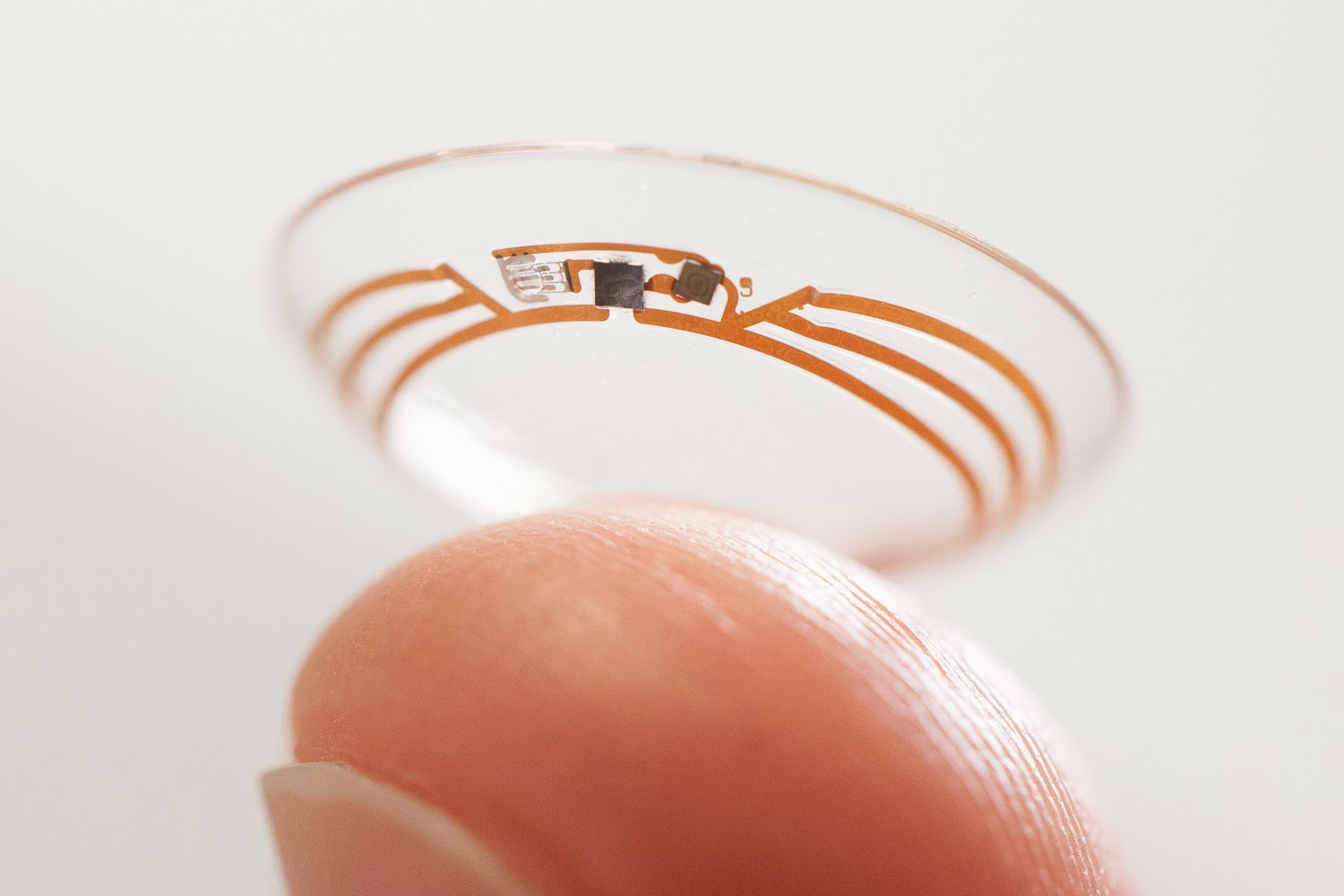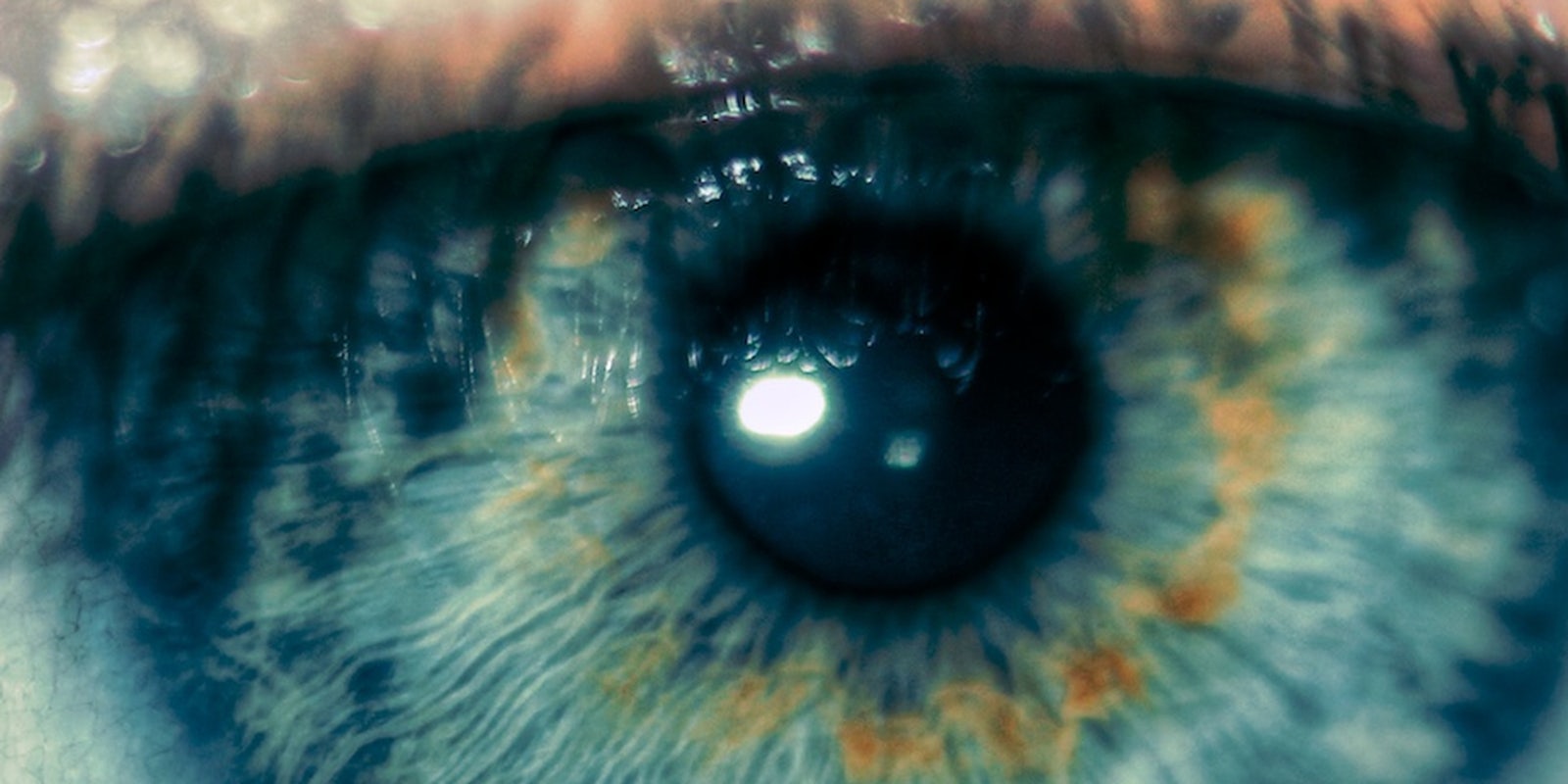Continuing its recent push into biotech, Google yesterday introduced a prototype for a potentially life-saving bit of eyewear: the smart contact lens. It’s designed to monitor glucose levels in the tears of diabetics in order to save them the pain and trouble of regularly testing their blood sugar.
People say that managing diabetes “is like having a part-time job,” wrote project cofounders Brian Otis and Babak Parviz, of the secret Google X lab, in a company blog post. And because the common methods for doing so are intrusive, many “check their blood glucose less often than they should.”
Otis and Parviz set out to invent a device capable of assessing a patient’s health continuously. Tears were among the bodily fluids researchers thought might hold the key to easier blood sugar tracking, but how could they be collected and studied?
“[W]e wondered if miniaturized electronics—think: chips and sensors so small they look like bits of glitter, and an antenna thinner than a human hair—might be a way to crack the mystery of tear glucose and measure it with greater accuracy. We’re now testing a smart contact lens that’s built to measure glucose levels in tears using a tiny wireless chip and miniaturized glucose sensor that are embedded between two layers of soft contact lens material. We’re testing prototypes that can generate a reading once per second. We’re also investigating the potential for this to serve as an early warning for the wearer, so we’re exploring integrating tiny LED lights that could light up to indicate that glucose levels have crossed above or below certain thresholds.”

Yes, you read that correctly: We’ve just taken a giant step toward a transhumanist future where the slightest hiccup in one’s health—an irregular heartbeat, for example—will be sensed via microchip and instantly relayed into your skull by blinking lights that sit directly on your eyeball. (We’ll probably just take them out when we’re trying to binge-watch something suspenseful on Netflix while eating a gallon of cookie-dough ice cream.)
That level of sophistication will take years of additional work, but as for the glucose prototype, Google is already “in discussions with the FDA” and seeking ways to make the data it records available to patient’s doctors. And Google itself, we assume. Don’t forget the NSA, either! They hate to be out of the loop.
Photo by @Doug88888/Flickr


